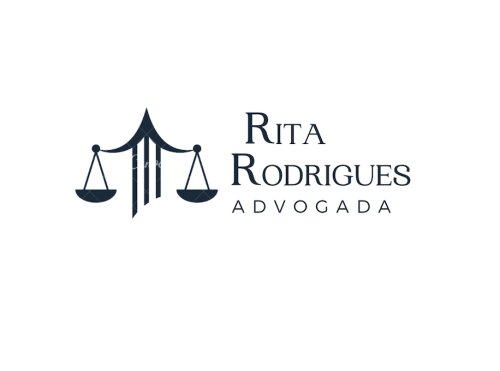Best Nonprofit & Charitable Organizations Lawyers in Porto
Share your needs with us, get contacted by law firms.
Free. Takes 2 min.
List of the best lawyers in Porto, Portugal
About Nonprofit & Charitable Organizations Law in Porto, Portugal
Nonprofit and charitable organizations in Porto, Portugal, play a vital role in supporting community development, education, social welfare, the arts, and various humanitarian causes. These entities, which can take the form of associations, foundations, cooperatives, or private social solidarity institutions, must adhere to specific legal frameworks that govern their formation, management, and activities. Portuguese law provides guidelines for the creation, operation, and oversight of these organizations to ensure transparency, accountability, and alignment with their stated social purposes.
Why You May Need a Lawyer
Legal support is essential for those involved in nonprofit and charitable organizations in Porto. Engaging a lawyer can help in situations such as:
- Establishing a new nonprofit or charitable organization and choosing the appropriate legal structure.
- Drafting and reviewing bylaws, statutes, and governance documents.
- Navigating registration processes and compliance requirements with local authorities.
- Resolving internal disputes between members, directors, or stakeholders.
- Ensuring compliance with tax exemption laws and other fiscal obligations.
- Managing employment and volunteer agreements within the organization.
- Addressing issues related to fundraising, contracts, and donations.
- Handling mergers, dissolutions, or major organizational changes.
- Mitigating risks related to liability and organizational governance.
- Defending the organization in legal actions or administrative proceedings.
Local Laws Overview
Nonprofit and charitable organizations in Porto must comply with Portuguese national law, as well as local regulations. The primary legal frameworks include the Civil Code, the Framework Law on Associations, special laws for private institutions of social solidarity (IPSS), and tax laws pertinent to nonprofits.
Key areas of regulation include:
- Legal Formation and Registration: Organizations must draft statutes and register with the relevant local or national authorities, such as the Registry of Legal Persons (Registo Nacional de Pessoas Colectivas).
- Governance: Nonprofits must institute clear governance structures with defined roles for boards, directors, and assemblies. Regular meetings and recorded minutes are often required.
- Financial Oversight: Transparency is mandated, including yearly financial reporting and, in some cases, independent audits.
- Taxation: Nonprofits may be eligible for certain tax exemptions but must file requisite documentation to maintain this status.
- Employment and Volunteer Regulation: Labor laws apply to paid staff, and specific rules protect volunteers and beneficiaries.
- Fundraising and Donations: There are legal standards for soliciting donations, accepting endowments, and accounting for funds received from public or private sources.
Local authorities in Porto may have additional requirements or offer support specific to municipal policy.
Frequently Asked Questions
What types of nonprofit organizations are recognized in Porto, Portugal?
Portugal recognizes associations, foundations, cooperatives, and private social solidarity institutions as forms of nonprofit organizations. Each type has its own legal requirements and purposes.
How do I start a nonprofit organization in Porto?
You need to draft statutes, hold an initial meeting with founding members, formalize the organization through a public deed, and then register with the Registry of Legal Persons and relevant tax authorities.
Are there specific registration authorities for nonprofits?
Yes. Most nonprofits register with the Registry of Legal Persons. Charities providing social support (IPSS) also require registration with the Social Security Institute and sometimes the local municipality.
Do nonprofit organizations in Porto get tax exemptions?
Nonprofits are eligible for certain tax exemptions on income, VAT, and municipal taxes if they meet legal requirements and apply for this status with the tax authorities.
What governance rules must nonprofits follow?
Organizations must follow their statutes, elect governing bodies, hold regular meetings, and keep accurate records. Compliance with anti-corruption and transparency rules is essential.
Can nonprofits employ staff and pay salaries?
Yes. Nonprofits can employ staff and must comply with Portuguese labor laws, including contracts, social security contributions, and employee rights.
What rules apply to fundraising and donations?
Transparency is critical. Nonprofits must keep detailed donor records, provide receipts, and ensure that funds are spent according to their social mission and legal restrictions.
Are there reporting or audit obligations?
Yes. Nonprofits must regularly file financial statements and, for larger organizations or IPSS, perform audits as specified by law.
How are disputes within a nonprofit resolved?
Disputes are usually resolved through internal procedures outlined in the statutes, or, if necessary, legal action in civil courts.
Can a nonprofit be dissolved, and what happens then?
Yes. Dissolution may occur voluntarily or by court order. Assets are generally transferred to similar organizations or as provided in the statutes and according to law.
Additional Resources
If you wish to learn more about nonprofit and charitable organizations in Porto, consider reaching out to these resources:
- Instituto da Segurança Social (Social Security Institute): Responsible for registering social solidarity organizations and providing guidance on legal compliance.
- Registo Nacional de Pessoas Colectivas (National Registry of Legal Persons): The main authority for formalizing and registering nonprofit legal entities.
- Autoridade Tributária e Aduaneira (Portuguese Tax and Customs Authority): For information on tax identification, exemptions, and fiscal obligations.
- Câmara Municipal do Porto (Porto City Council): Local support, authorization, or inquiry on municipal policies or benefits for nonprofits.
- Confederação Portuguesa do Voluntariado (Portuguese Volunteering Confederation): Information and support regarding volunteering and nonprofit best practices.
- Professional legal associations: Such as the Ordem dos Advogados (Bar Association) for finding qualified legal advisors with expertise in nonprofit law.
Next Steps
If you need legal assistance with nonprofit and charitable organizations in Porto, Portugal, consider the following steps:
- Clarify your organization's goals and legal needs to better communicate them to an advisor.
- Gather all relevant documents, such as founding statutes, minutes, financial reports, and correspondence with authorities.
- Seek initial guidance from free resources or public institutions where possible.
- Contact a lawyer specializing in nonprofit law to review your situation, provide tailored advice, and assist with any legal filings or disputes.
- Maintain ongoing compliance with legal requirements through regular consultation, training, and updates on local legal developments.
Working with a qualified legal professional will help your nonprofit organization operate smoothly, comply with all relevant laws, and maximize its positive impact in the Porto community.
Lawzana helps you find the best lawyers and law firms in Porto through a curated and pre-screened list of qualified legal professionals. Our platform offers rankings and detailed profiles of attorneys and law firms, allowing you to compare based on practice areas, including Nonprofit & Charitable Organizations, experience, and client feedback.
Each profile includes a description of the firm's areas of practice, client reviews, team members and partners, year of establishment, spoken languages, office locations, contact information, social media presence, and any published articles or resources. Most firms on our platform speak English and are experienced in both local and international legal matters.
Get a quote from top-rated law firms in Porto, Portugal — quickly, securely, and without unnecessary hassle.
Disclaimer:
The information provided on this page is for general informational purposes only and does not constitute legal advice. While we strive to ensure the accuracy and relevance of the content, legal information may change over time, and interpretations of the law can vary. You should always consult with a qualified legal professional for advice specific to your situation.
We disclaim all liability for actions taken or not taken based on the content of this page. If you believe any information is incorrect or outdated, please contact us, and we will review and update it where appropriate.
















